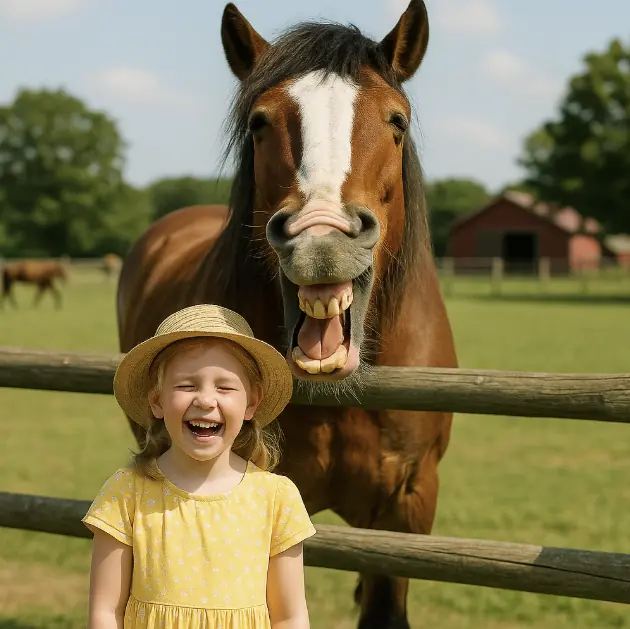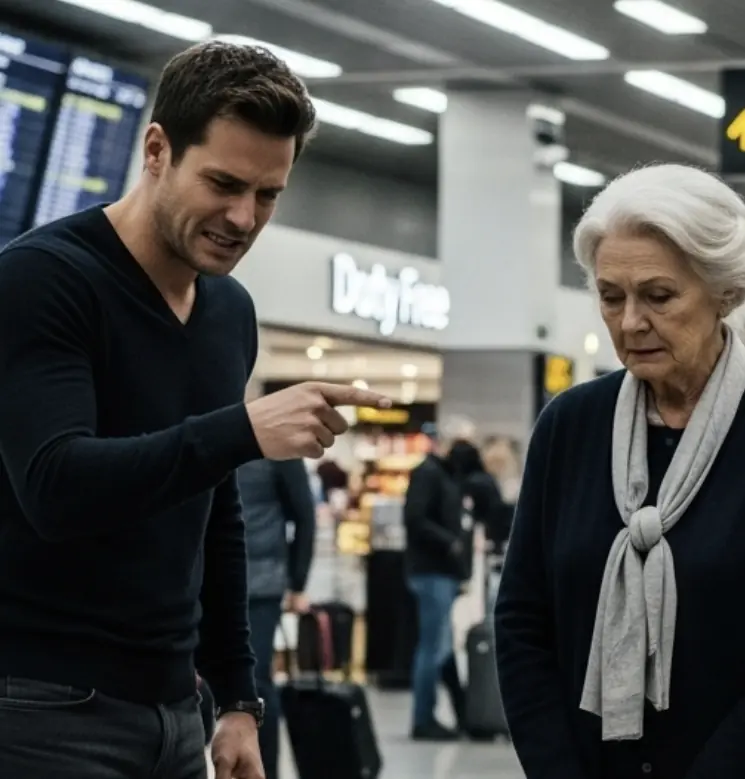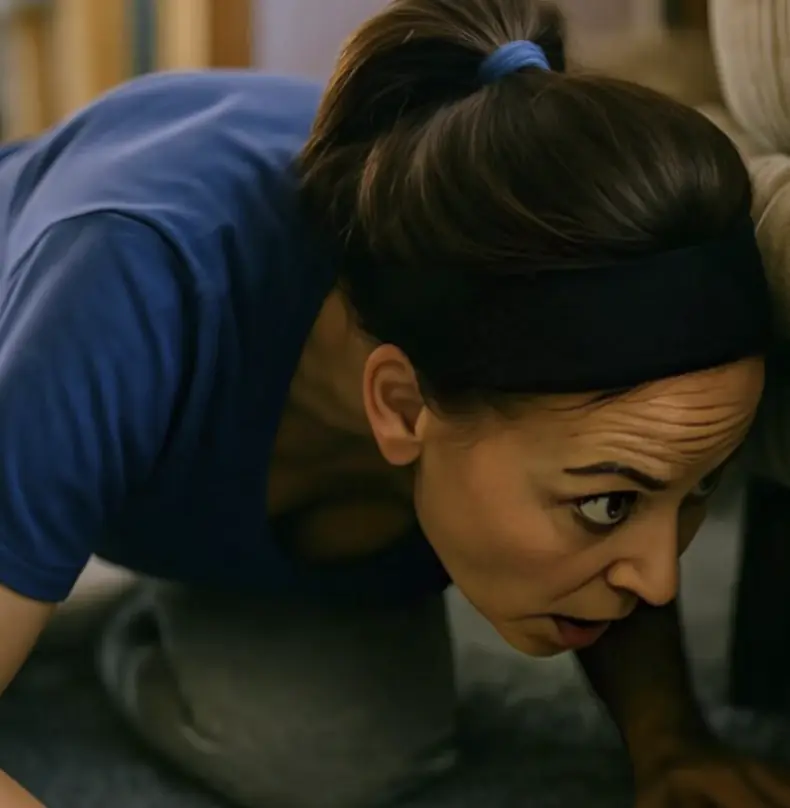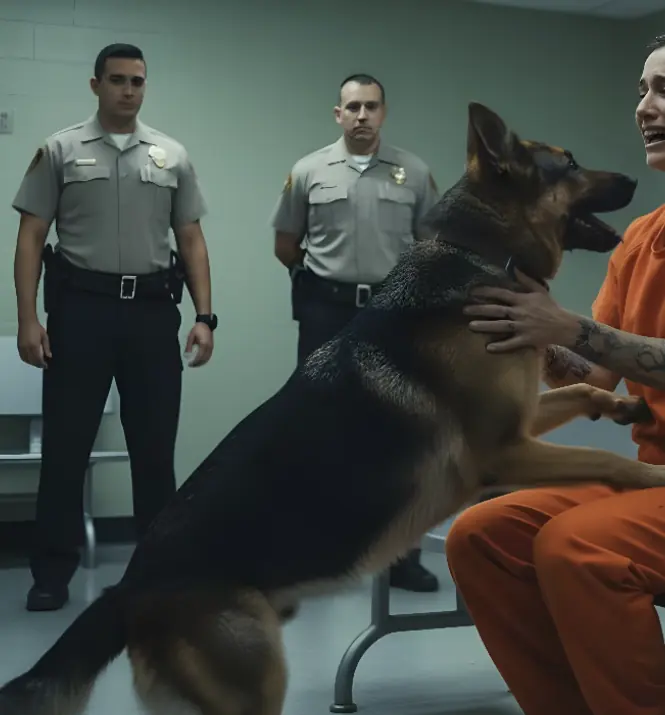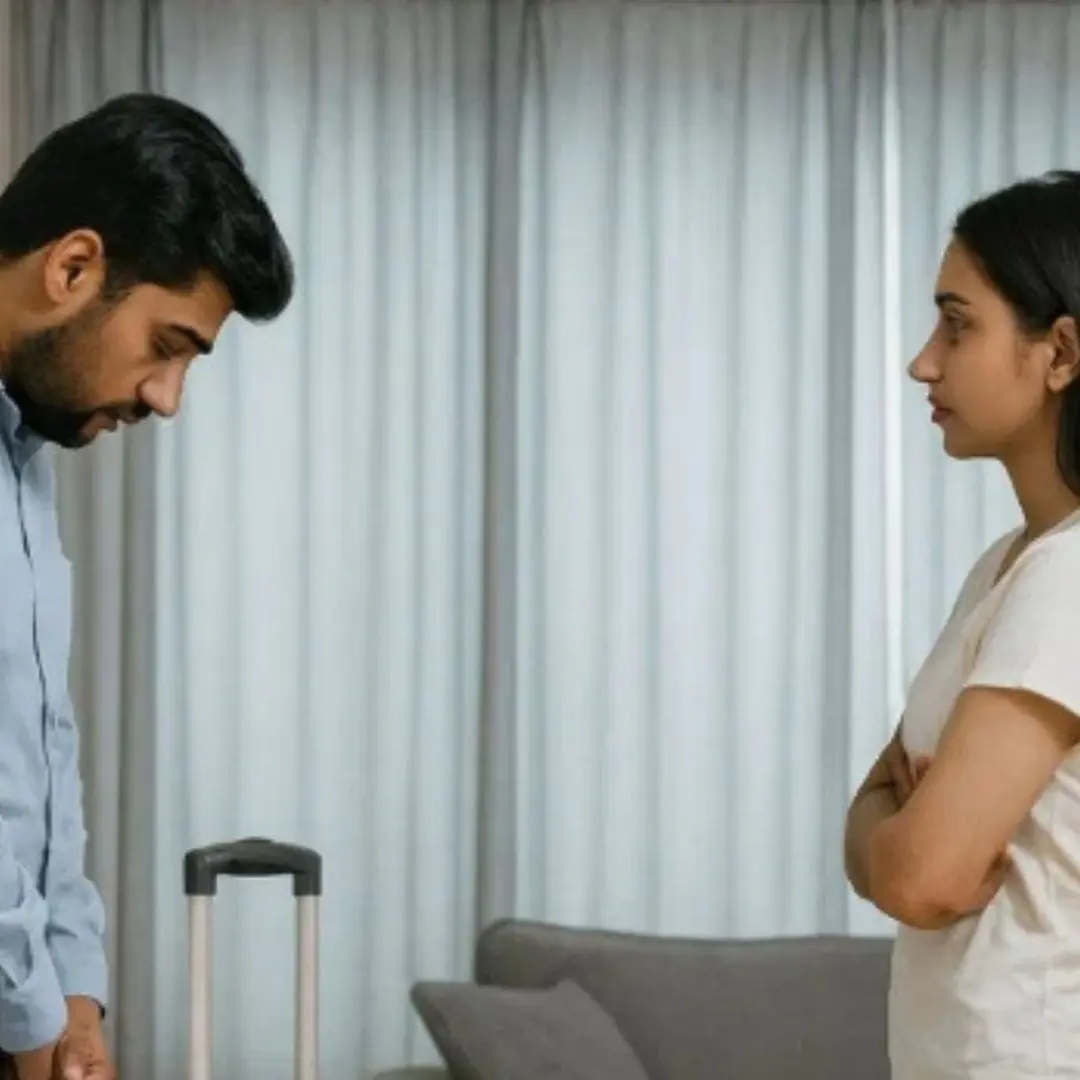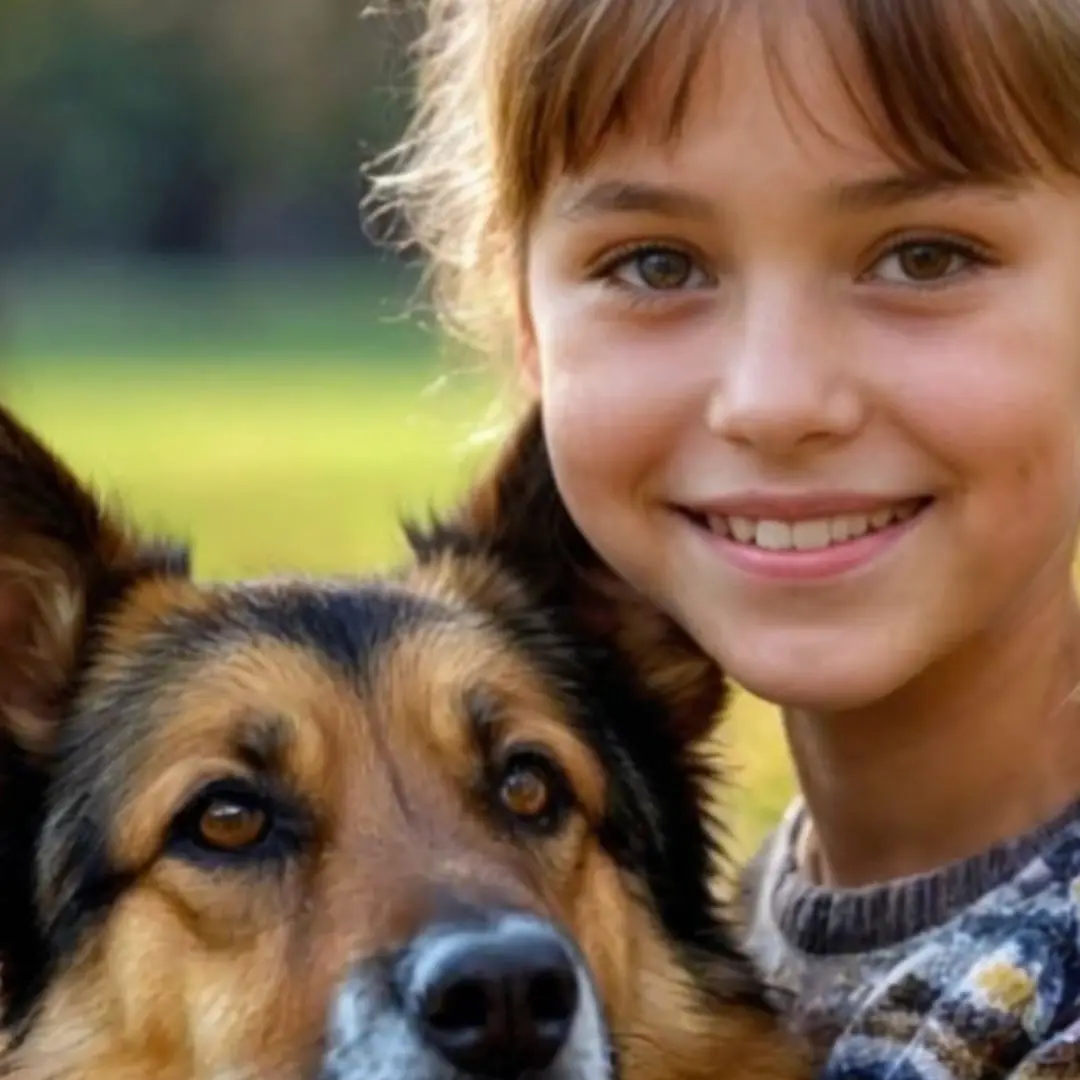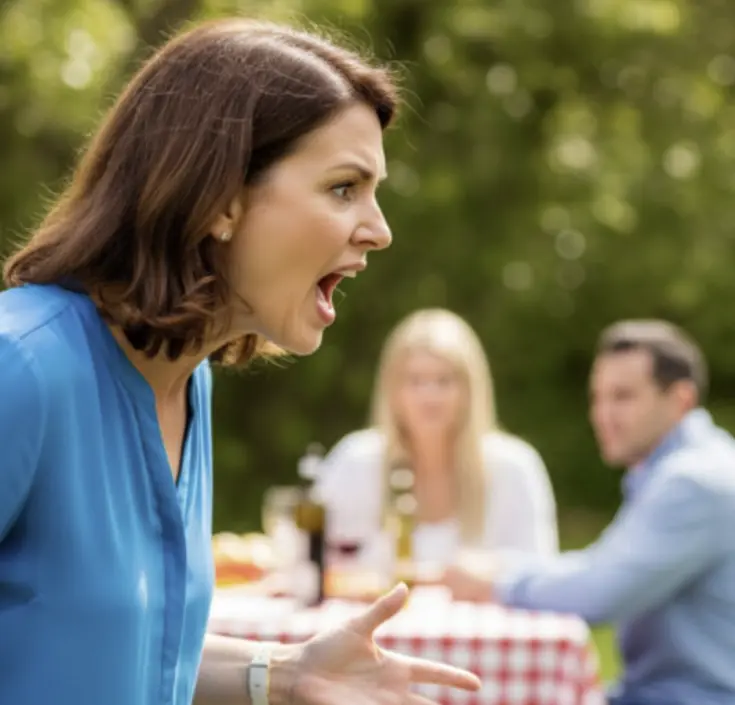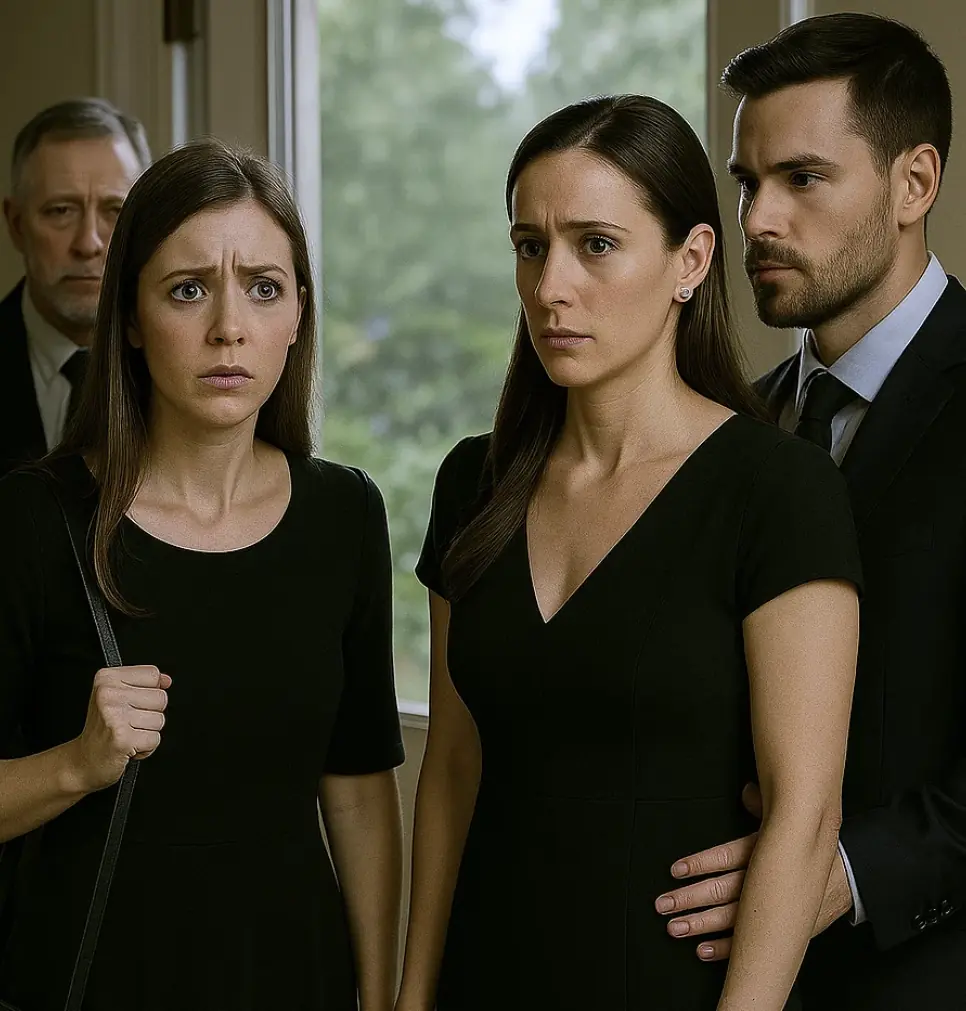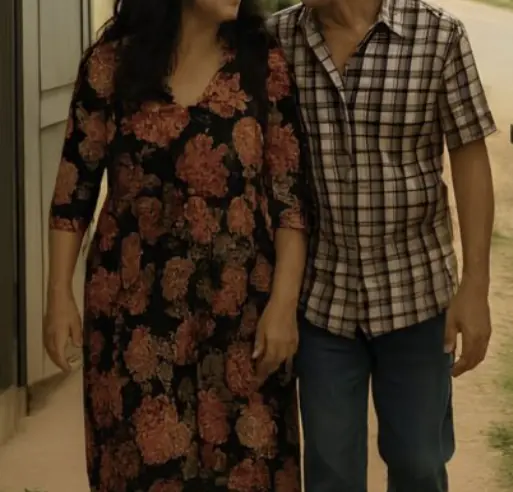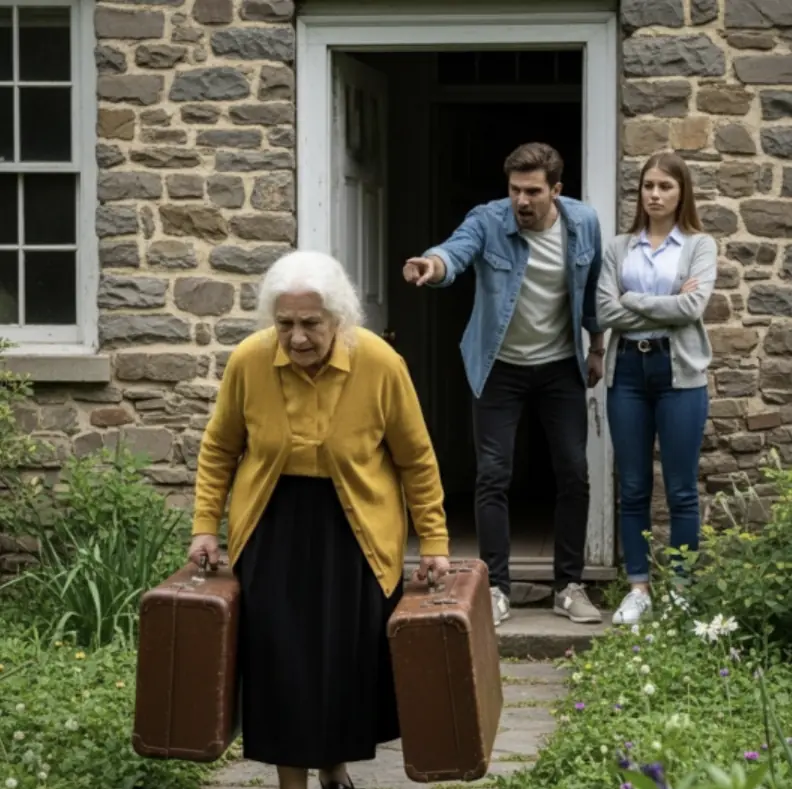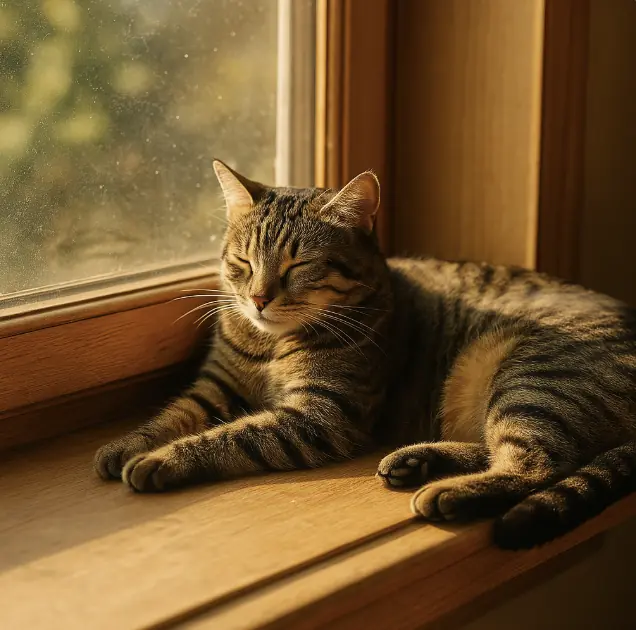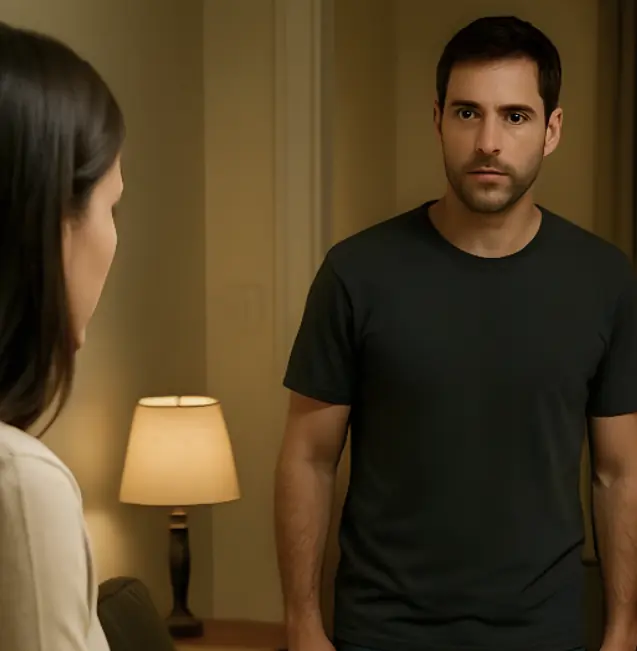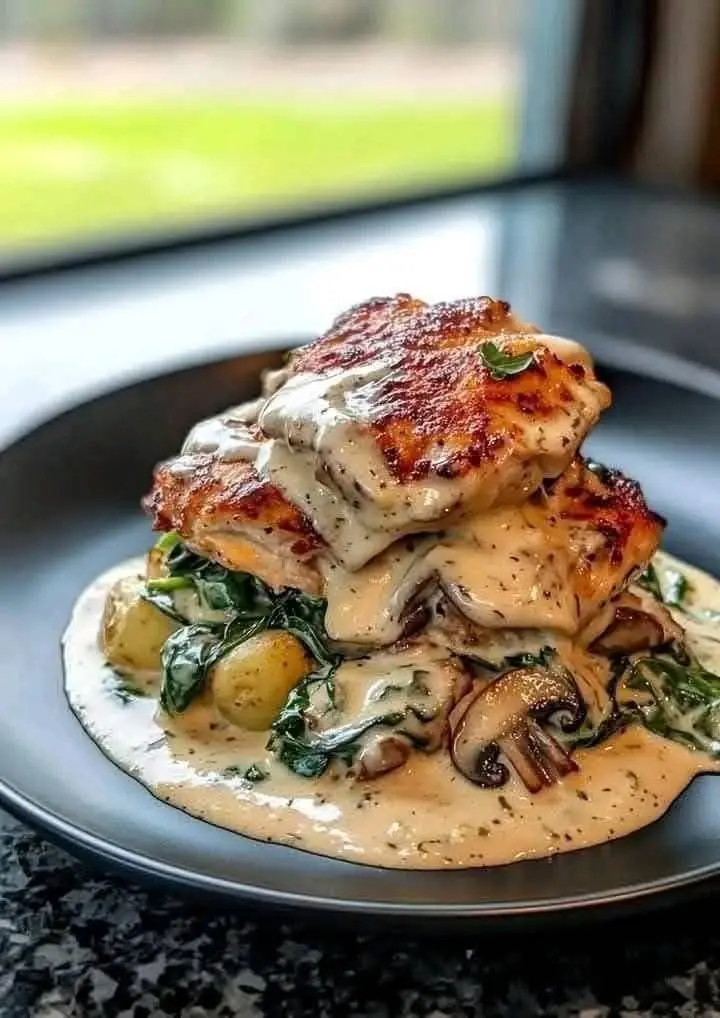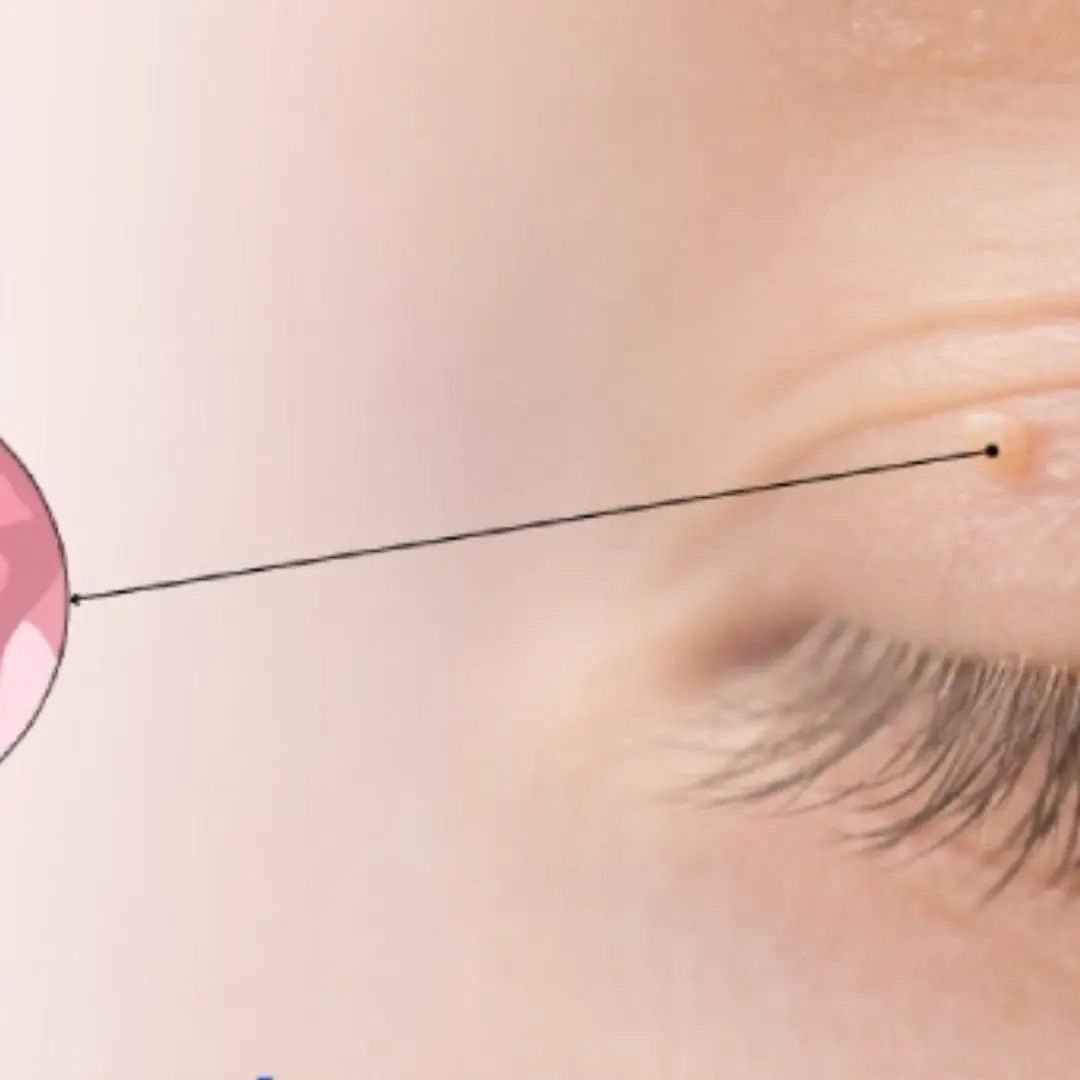I’ve always believed I had a fairly predictable life. My job was steady, my routines comforting, and my neighborhood quiet in a way that felt safe. I knew the rhythm of my street—the early walkers, the friendly couples, the retirees who tended their gardens every morning. Nothing ever changed drastically here, which is why I noticed the new family the moment their moving truck rolled in.
They moved into the house next door, a place that had been empty for months. I watched from my kitchen window as boxes were unloaded and furniture wrapped in protective blankets was carried through the front door. The couple looked young, maybe in their early thirties, and there was something warm about the way they worked together—laughing, chatting, coordinating their steps.
I didn’t plan on introducing myself right away, but when I stepped outside to check the mail later that afternoon, the husband happened to be there. He looked up, smiled politely, and walked over.

“Hi there,” he said. “You must be the neighbor.”
I nodded. “Welcome to the street. I’m Clara.”
His smile widened. “Clara… or should I say ‘Little Star’?”
I felt the air freeze around me.
I hadn’t heard that nickname since I was maybe seven. My mother used to call me that every night before bed, saying I lit up her world the way a small star brightens a dark sky. No one outside my family knew that name. Not even my closest friends from school. It was too personal, too precious, and tied solely to my mother’s voice.
“How did you…?” I started, but the words tangled in my throat.
He seemed to realize he had said something odd. His smile faded slightly. “Sorry. I didn’t mean to surprise you. I just—well, I thought that was you.”
My heartbeat quickened. “What do you mean, thought that was me?”
He looked down at the ground for a moment. “I must’ve gotten it wrong. Forget I said anything.”
But I couldn’t forget. The nickname echoed in my head for the rest of the day, unsettling me more and more. How could this stranger know something so deeply personal? I didn’t even use it online or in old journals. It was a private memory that belonged only to me and my mom.
That night, I called my childhood friend, someone who had grown up in the same neighborhood I used to live in. I asked if she remembered anyone new around the area back then, someone my age or older who might’ve overheard my mom using the nickname. She had no idea what I was talking about. No one outside my immediate family would know.
The next day, I decided to be polite but guarded. I baked some cookies and brought them next door as a welcome gesture. The wife answered, and she was lovely—warm, cheerful, excited to meet everyone. When her husband appeared behind her, he gave me that same friendly smile, but this time, something in his eyes seemed more careful.
I handed her the cookies and said, “Just a little welcome gift. I’m glad you’ve moved in.”
The husband nodded. “Thank you, Clara.”
No nickname this time. But when he closed the door after we chatted for a few minutes, I saw the way he leaned in close to his wife, whispering something urgently. I couldn’t hear the words, but his expression wasn’t casual. It was concerned.

That night, I lay awake thinking about him, replaying the moment over and over. The way he looked straight into my eyes when he said “Little Star,” as though he wasn’t just guessing—he was remembering.
A few days later, I was gardening in my backyard when he appeared on the other side of the fence. He waved politely, and though I hesitated, I waved back.
“Beautiful day,” he said.
“Yes,” I replied. “Perfect for gardening.”
He watched me trim a plant for a moment, then said something that made my hands stop mid-air.
“Your mom used to garden too, didn’t she? She loved tulips.”
I froze again. My mother adored tulips. She planted them every spring. And she would always hum a soft tune while tending to them—a tune she said her grandmother taught her. I never mentioned that to anyone. Not even Daniel, my ex. It wasn’t something I shared because it felt like a warm, private memory I wanted to keep safe.
“How do you know that?” I asked, my voice sharper than I intended.
He blinked as if realizing he’d crossed another invisible line. “I—I must be mistaken. I’m sorry.”
But his tone wasn’t confused. It was apologetic. He knew exactly what he had said.
I couldn’t shake the feeling that something strange was happening. I began to look through old photo albums, hoping for a clue. My childhood photos showed ordinary memories—birthdays, school events, family trips. No strangers in the background. No mysterious neighbors or visitors.
But one photo caught my attention. It wasn’t even particularly interesting—just me playing on the porch, around age three. In the corner of the image was a boy standing with my mother. He was older than me, maybe eight or nine, and my mother had her hand on his shoulder. The pose was affectionate, familiar. Yet I had absolutely no memory of him.

I took the photo to my aunt, who lived nearby and had always been close to my mom. When I showed her, she went quiet for a long time.
“Who is he?” I pressed.
She hesitated, then spoke carefully. “Your mother used to be part of a community program. She took care of children for families who were going through hardship. It wasn’t formal—more like temporary support. Your mom never talked much about it because she didn’t want you to feel confused.”
The boy in the photo—the one my mother comforted like family—could be the same man living next door.
“Do you remember his name?” I asked.
“No,” my aunt replied softly. “She only said he was a shy boy who had been through a difficult time.”
A strange heaviness pressed against my chest as I left her house.
That evening, I knocked on the new neighbors’ door. The wife answered, smiling brightly, but when I asked if I could speak to her husband privately, her smile faded slightly. She called him over.
He stepped outside, closing the door behind him. “Is everything okay?”
I held up the photo.
His eyes widened instantly. Not in surprise—but in recognition.
“That’s you,” he said softly, pointing to the little girl. Then his finger trembled as he pointed to the boy. “And that’s me.”
My breath left my lungs. “Why didn’t you say anything?”
He swallowed hard. “Because I wasn’t sure if I should. I didn’t know if you remembered. And I didn’t want to upset you.”
I shook my head. “But the nickname… and the tulips… how could you keep that from me?”
He exhaled shakily, leaning against the porch railing. “Your mother was the closest thing I had to family at that time. She took care of me when things at home were… difficult. She gave me food, read to me, taught me how to help in the garden. She called you ‘Little Star’ so much that it became the way I remembered you. I thought you’d remember me too, but when I saw you didn’t, I didn’t want to overwhelm you.”
I stared at him, trying to match the adult standing in front of me with the quiet boy in the photograph. The realization washed over me slowly. He wasn’t a stranger at all. He was a piece of my past I had forgotten—a piece my mother had held gently and quietly for a period of time.
“Why tulips?” I asked softly.
He smiled sadly. “Because she said tulips were her hope flowers. She told me that when life felt heavy, you plant something beautiful so you have something to look forward to. She said she hoped I’d plant tulips one day, too.”
My throat tightened painfully. “Why did she never tell me about her helping you?”
“Because she didn’t want you to see her as someone carrying too many burdens,” he said. “She wanted your childhood to feel light. She didn’t want you to feel like you had to share her with someone else who needed help.”
His voice grew even softer. “Before she passed, she told me something. She said if I ever crossed paths with you again, I should look after you the way she once looked after me.”
Something warm broke inside me—a mix of grief, nostalgia, and unexpected comfort.
For weeks, I had convinced myself he was a threat, someone with ulterior motives, someone watching me. But the truth was far simpler and much more human. He wasn’t a stranger intruding into my life. He was a boy my mother once sheltered—a boy who never forgot her kindness.
And when I looked up at him again, I realized I didn’t feel fear anymore.
I felt… connected. In a way I hadn’t expected.
My mother had helped him during his hardest moments. And without knowing it, he had brought her memory back to me in a way that felt like a gift.
A piece of her had been living right next door.





